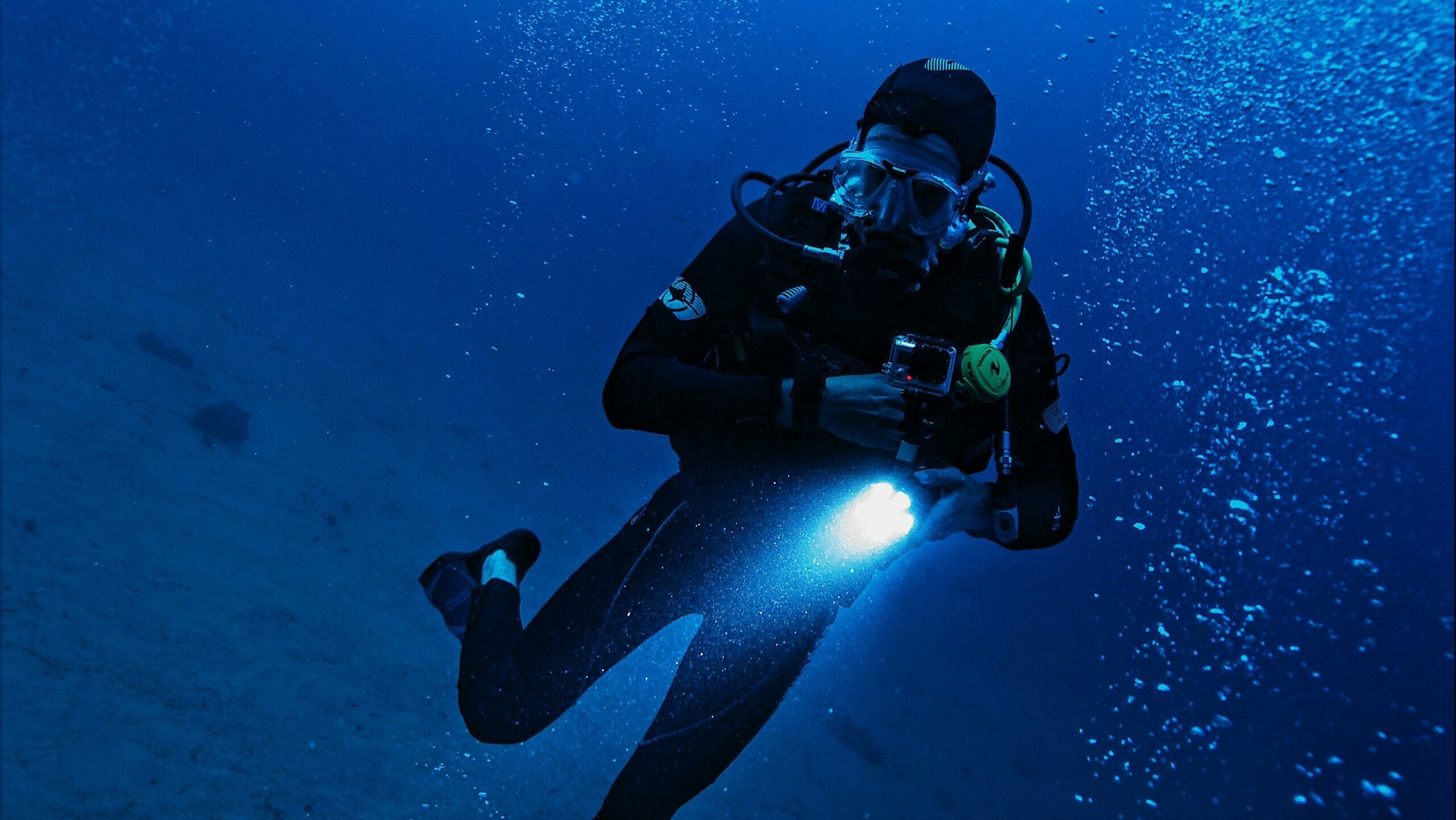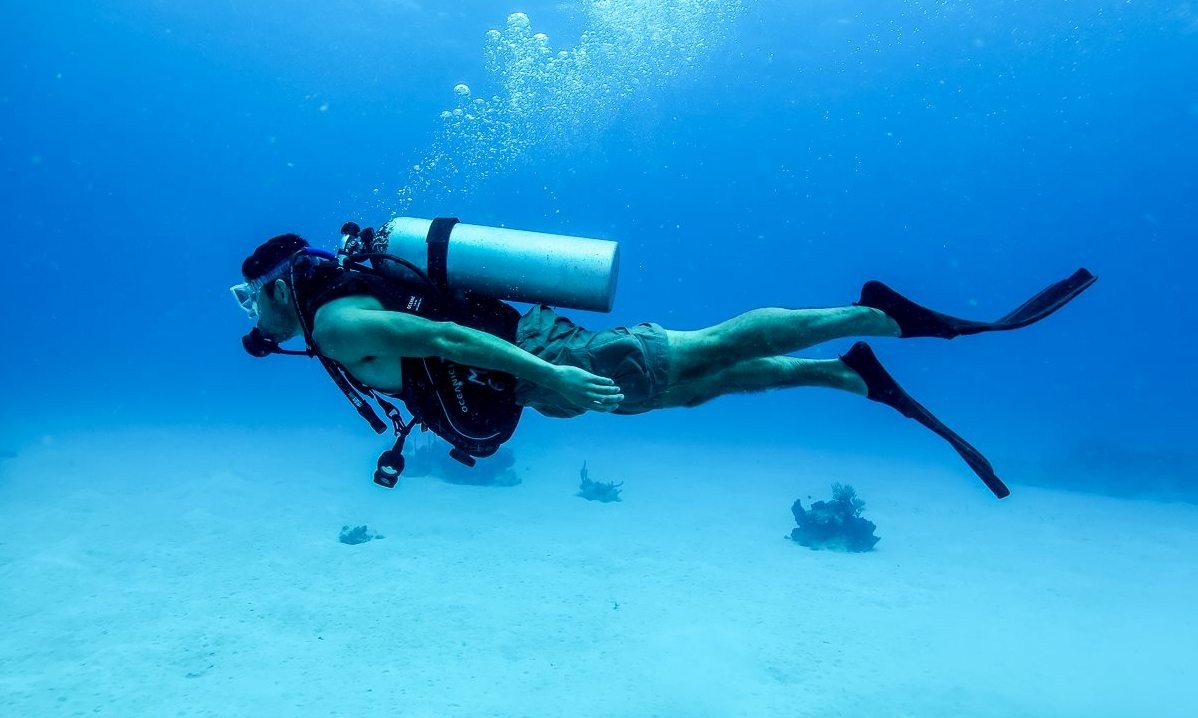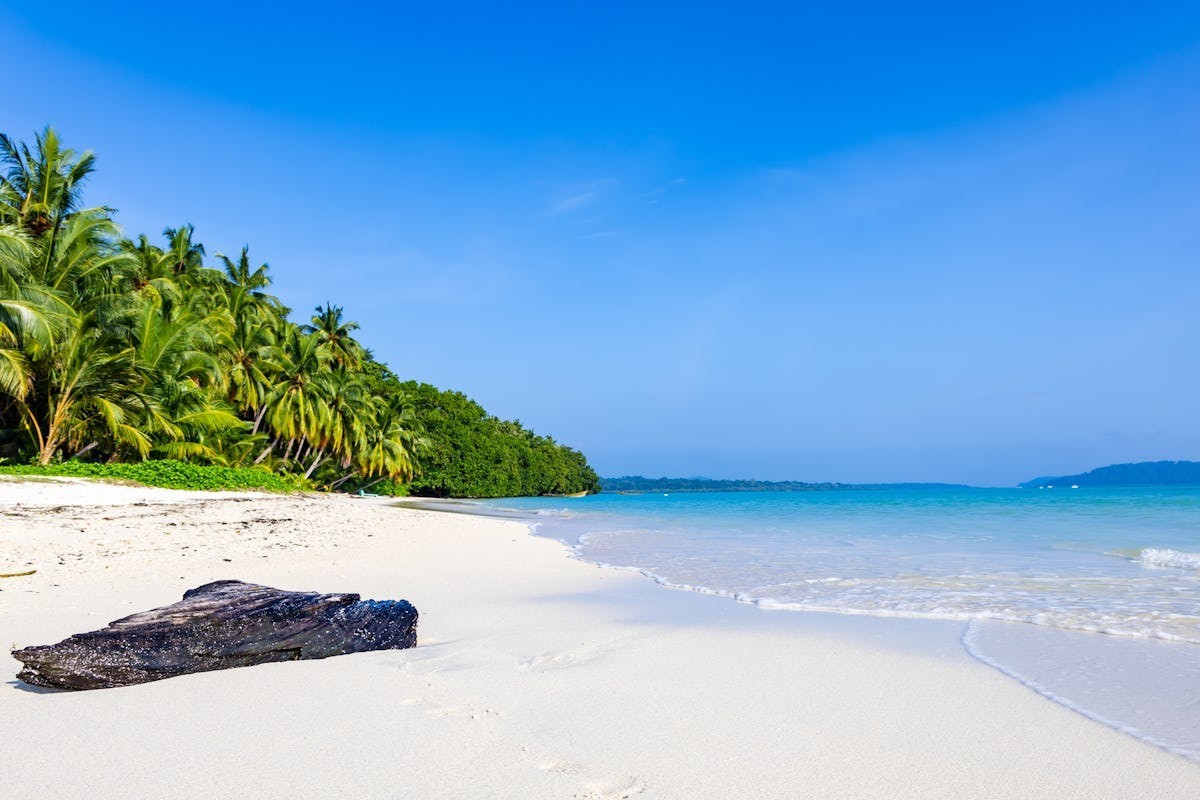Diving Sites in Port Blair



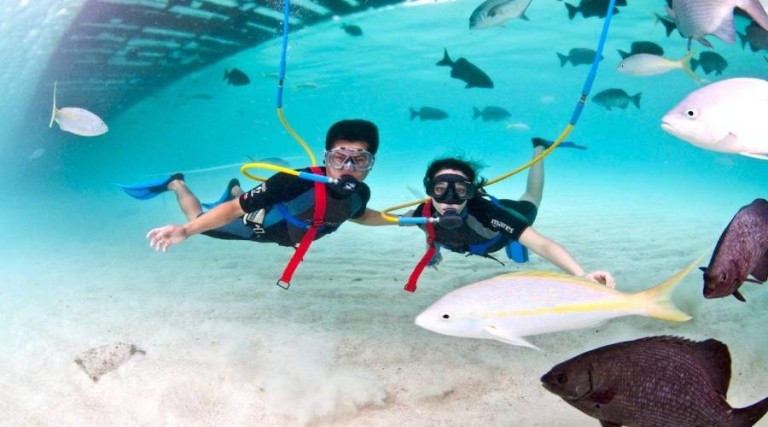
-
Aug 01, 2023
Are you entranced by the idea of gliding beneath the waves, surrounded by vibrant coral and shoals of tropical fish? Maybe you're asking the question: Can I scuba dive without a certification? Well, let's plunge into this deep-sea topic, leveraging information from credible sources like PADI and more!
Scuba 101: Understanding the Basics
Scuba diving is an incredible activity that enables you to experience the world from an entirely new perspective. No, we're not talking about climbing a mountain or skydiving but venturing into the deep, serene, and utterly captivating marine realm.
In scuba diving, divers use a self-contained underwater breathing apparatus, also known as SCUBA, to breathe underwater. Unlike snorkelling, where you float on the surface and peer down into the water, scuba diving allows you to descend into the depths, immersing yourself completely in the underwater world.
Scuba diving can range from a shallow dive around a coral reef, observing the bustling marine life, to more complex dives into underwater caves or wrecks, and even deep-sea explorations. It's an activity that can be tailored to your interests, skill levels, and sense of adventure.
But hang on, here's a hurdle you may have encountered: Scuba diving certification. It sounds daunting and almost official, doesn't it? But is it necessary? In truth, the world of scuba diving is more flexible than you might think!
The Certification Misconception
Contrary to common belief, you can indeed explore the undersea world without an official scuba diving certification. There are ways you can experience the joys and thrills of scuba diving, even if you don’t have a certification card in your pocket!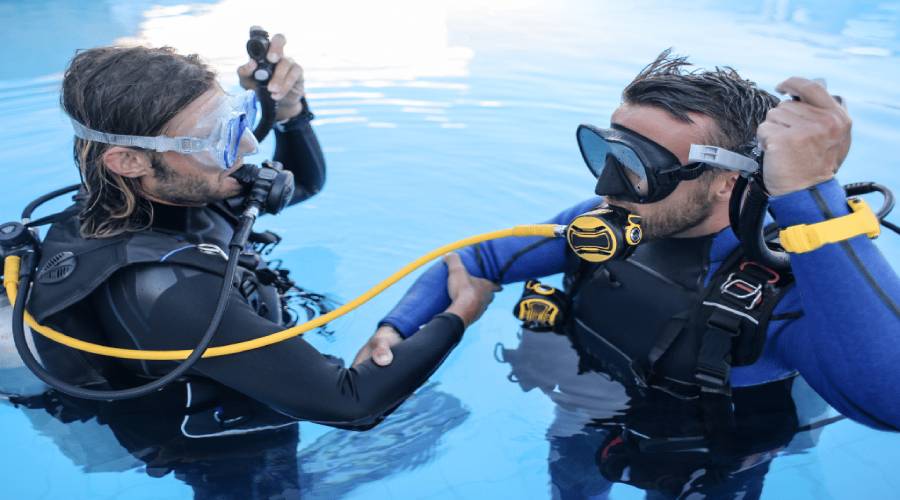
Discover Scuba Diving (DSD)– An Introduction to the Deep
Discover Scuba Diving sometimes referred to as resort diving is the quickest and easiest way to dive straight into the fun - quite literally! Offered at many beachside resorts, this option allows first-timers to get a feel for scuba diving without committing to a full certification course. Discover Scuba Diving, offered by PADI (Professional Association of Diving Instructors), is the perfect way for curious adventurers to experience the wonders of scuba diving for the first time.
Here's how DSD works: Typically, the DSD program starts with a brief orientation, where a PADI professional will go over the basics of diving safety, the equipment you'll use, and what you can expect from your dive. You'll learn how to breathe underwater, communicate with your instructor, and move around while carrying your gear.
Next comes the really exciting part – the dive itself! Under the close supervision of your PADI professional, you'll dive into a pool or a confined water area with pool-like conditions. This controlled environment allows you to get used to breathing underwater and manoeuvring in your equipment without the risks associated with open-water dives.
Once you're comfortable, depending on the program, you may have the opportunity to go on an actual open-water dive. Don't worry, you won't be dropped into the middle of the ocean to fend for yourself. This will be a closely supervised experience, conducted at a relatively shallow depth, where you can see marine life up close.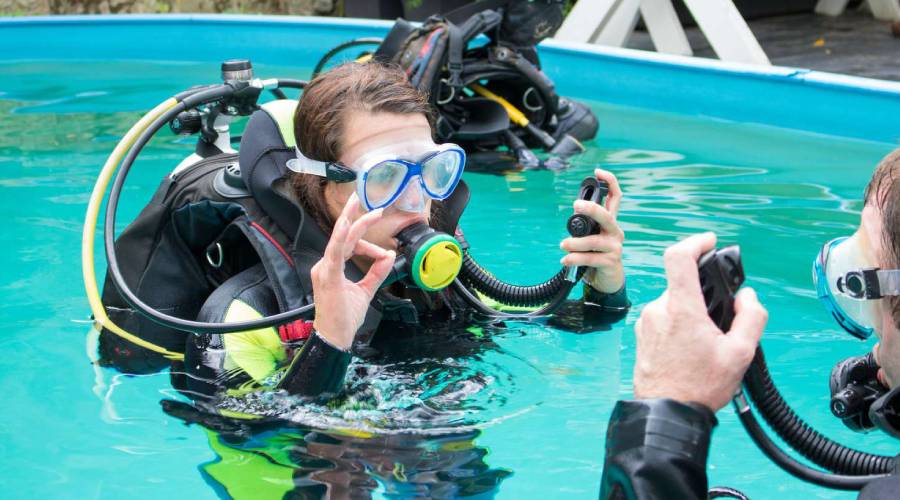
Why should you do Discover Scuba Diving?
Discover Scuba Diving allows you to experience scuba diving in a controlled, safe environment, helping you decide whether to dive deeper into the sport or not. Here are some compelling reasons why you should give DSD a try.
It’s Easy and Fun: One of the most appealing aspects of DSD is its simplicity and enjoyment. There’s no need for weeks of training or having to pass stringent tests. You'll get a quick introduction to the basics of diving, don your gear, and dive right in. With an experienced PADI instructor by your side, you'll be gliding through the water, marvelling at marine life in no time!
Experience Weightlessness: Remember those dreams where you could fly, soaring above the world with ease? DSD can help you realize a version of those dreams. Scuba diving offers the sensation of weightlessness, akin to being an astronaut in space. It's a unique experience that, on its own, is worth trying DSD.
Dip Your Toes Before Taking the Full Plunge: Scuba diving might seem intimidating at first. You might wonder if it's worth the time, money, and effort to get certified. DSD is your chance to answer those questions. It allows you to experience scuba diving in a controlled, safe environment, helping you decide whether to dive deeper into the sport or not.
The Door to A Bigger Adventure: While DSD is not a scuba diving certification, it's a stepping stone towards one. If you enjoyed your DSD experience and want to explore more of the underwater world, you can take the next step and enrol in a PADI Open Water Diver (OWD) course. The skills you learn during your DSD experience may be credited towards your OWD course..jpg)
But Should You Get Certified?
Diving into the vibrant world beneath the ocean's surface is undoubtedly thrilling. While introductory experiences like Discover Scuba Diving (DSD) are fantastic, they merely scratch the surface of what scuba diving offers. Earning a scuba diving certification unlocks an ocean of possibilities - literally. Let's explore the reasons why you should consider getting scuba diving certified.
Dive Independently: While DSD is an excellent first step, it only allows you to dive under the direct supervision of a PADI professional. On the other hand, becoming a certified diver means gaining the skills and knowledge to dive independently, albeit always with a buddy, as per diving best practices. It’s a new level of freedom and adventure.
Access More Dive Sites: Most exciting and popular dive sites around the world require divers to hold at least an entry-level certification like PADI's Open Water Diver. These sites can include spectacular coral reefs, mesmerising marine life hotspots, or fascinating shipwrecks. By getting certified, you open up a world of locations and experiences that are off-limits to non-certified divers.
Learn Essential Safety Skills: Safety is paramount in scuba diving. While DSD covers basic safety principles, getting certified takes this to a new level. You'll learn how to react to various potential scenarios, perfect your buoyancy control, and understand how to use all your gear properly. These skills not only keep you safe but also ensure that you're a responsible and respectful visitor to the underwater world.
Understand the Marine Environment Better: During your certification process, you'll gain a deeper understanding of the marine environment. You'll learn about the physics and physiology of diving, the importance of conservation, and how to interact responsibly with marine life. This knowledge greatly enhances the richness of your diving experience.
Journey to Advanced Diving Activities: The underwater world is vast and diverse, and getting certified is just the first step. With an Open Water Diver certification, you can advance to specialty courses like Deep Diver, Wreck Diver, Night Diver, and more. You can even climb the ranks to become a Dive Master or Scuba Instructor, transforming your passion into a profession..jpg)
Certification Process – What Does it Involve?
After you have dipped your toes into the world of diving with the Discover Scuba Diving (DSD) experience and decided it's something you'd love to pursue further, several certification courses are available to you. Here are some courses you can pursue after DSD for scuba certification:
PADI Open Water Diver (OWD): The PADI Open Water Diver course is the first full certification course after the DSD experience. This course equips you with all the essential skills and knowledge you need to dive independently with a buddy down to a maximum depth of 18 meters (60 feet).
PADI Advanced Open Water Diver (AOWD): After the Open Water Diver course, you can take the PADI Advanced Open Water Diver course. It consists of five adventure dives, including deep and navigation dives, along with three other dives of your choice, each one focusing on a different specialty. The AOWD course increases your maximum depth limit to 30 metres (100 feet) and broadens your diving skills.
PADI Rescue Diver: The PADI Rescue Diver course helps divers develop their problem-solving skills and learn to manage more complex dive emergencies. This course is widely recognized for increasing confidence in divers by providing them with valuable skills to respond to a variety of situations that may arise while diving.
Speciality Courses: Speciality courses allow you to focus on particular aspects of diving that interest you. Some popular speciality courses include Deep Diver, Wreck Diver, Enriched Air Diver (Nitrox), Digital Underwater Photographer, Night Diver, and Peak Performance Buoyancy.
Certified or Not, Safety is Paramount!
Regardless of whether you're a certified diver, participating in a resort dive, or just snorkelling on the surface, safety should always be your top priority. After all, you're a guest in an environment that humans were not naturally designed to inhabit.
Even if you choose to dive without certification, it's crucial to respect your limitations and follow the instructions of your guide. Remember, there's no dive site in the world worth risking your safety for!
Diving Sites in Port Blair
Diving Sites in Havelock Island
Diving Sites in Neil Island
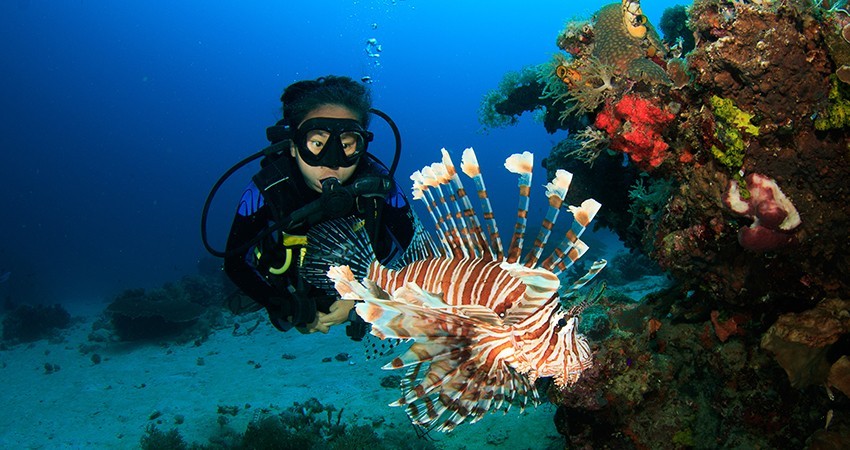
.jpg)
